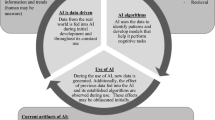Abstract
This paper aims at investigating comparatively the ethical orientation of information technology (IT) professionals in the Middle East and the United States. It tests for attitudes toward and awareness of ethically-related issues, namely intellectual property, privacy and other general ethical IT aspects. In addition, through a comparison between the two regions, this paper intends to examine whether differences in IT professional demographics and characteristics, including gender and academic level, have any impact on attitudes to business ethics. A t test is used to establish significant differences between the targeted samples, while an ANOVA F-test is conducted to determine significant differences among the sample countries on a group basis. The results show a general awareness of ethical issues concerning information technology, and no significant differences are found between the two samples. However, different ethical attitudes are reported among respondents in terms of their reactions to the targeted IT ethical aspects. On an individual sample basis, the results about gender support the claim that male and female respondents are different, while mixed results are revealed for the influence of academic level on attitudes towards IT ethics. For intellectual property, the results are significant regarding ethical attitude differences between Middle-Eastern professionals and their counterparts in the US, while no significance differences are reported in terms of privacy.

Similar content being viewed by others
References
Al-Shaikh, F., Elian, M., & Tahat, L. (2013). Business students attitudes towards business ethics: Evidence from Kuwait. International Journal of Education Research, 8(1), 59–76.
Banerjee, D., Cronan, T., & Jones, T. (1998). Modeling IT ethics: A study in situational ethics. MIS Quarterly, 22(1), 31–60.
Bass, K., Barnett, T., & Brown, G. (1999). Individual differences variables, ethical judgments, and ethical behavior intentions. Business Ethics Quarterly, 9(2), 183–205.
Brightman, H. (1981). Managing the decision science technology: A case for ethical analysis. Decision Science, 12(4), 690–697.
Business Software Alliance and IDC. (2009). Six annual BSA-IDC global software 08 piracy study, May. www.bsa.org.
Chan, A., Wong, S., & Leung, P. (1998). Ethical beliefs of Chinese consumers in Hong Kong. Journal Business Ethics, 17(1), 1163–1170.
Elian, M., Al-Shaikh, F., & Tahat, L. (2013). An exploration of students ethics-related judgments to selected settings vignettes: Evidence from developing countries. Ethics & Critical Thinking Journal, 2013(2), 32–62.
Heide, D., & Hightower, J. (1988). Teaching ethics in the information sciences curricula. Proceedings of the 1988 annual meeting of the decision sciences institute, pp. 198–200.
Hofstede, G. (1980). Culture consequences: International differences in work-related values. London: Sage Publications.
Kimppa, K. (2005). Intellectual property rights in software-justifiable from a liberalist position? Free software foundation’s position in comparison to John Locke’s concept of property. In R. A. Spinello & H. T. Tavani (Eds.), Intellectual property rights in a networked world: Theory and practice (pp. 67–82). Hershey, PA: Idea Group.
Kum-Lung, C., & Teck-Chai, L. (2010). Attitudes towards business ethics: Examining the influence of religiosity, gender and education levels. International Journal of Marketing Studies, 2(1), 225–232.
Lessig, L. (2004). Fee culture: How big media uses technology and the law to lock down culture and control creativity. New York: Penguin.
Mertha, A. (2005). The politics of piracy: Intellectual property in contemporary China. Ithaca: Cornell University Press.
Moore, A. (2005). Information ethics: Privacy, property, and power. Seattle WA: The University of Washington Press.
Pearson, J., Crosby, L., & Shim, J. (1996). Modeling the relative importance of ethical behavior criteria: A simulation of Information system professionals’ ethical decision. Journal of Strategic Information System, 5(4), 275–291.
Peterson, D. (2002). Deviant workplace behavior and the organization’s ethical climate. Journal of Business and Psychology, 17(1), 47–61.
Phau, I., & Kea, G. (2007). Attitudes of university students towards business ethics: A cross national investigation of Australia, Singapore and Hong Kong. Journal of Business Ethics, 72(1), 61–75.
Prior, M., Rogerson, S., & Fairweather, B. (2002). The ethical attitudes of information systems professionals: Outcome of an initial survey. Telematics and Informatics, 19(1), 21–36.
Sidani, Y. (2005). Women, work and Islam in Arab countries. Women in Management Review, 20(7), 498–512.
Sidani, Y., Abib, I., Rawwas, M., & Moussawer, T. (2009). Gender, age and ethical sensitivity: The case of Lebanese workers. Gender in Management: An International Journal, 24(3), 211–227.
Sims, R. (2006). Comparing ethical attitudes across cultures. Cross cultural management. An International Journal, 13(2), 101–113.
Spero, C., & Tyler, T. (2007). A cross-cultural assessment of attitudes of business students towards business ethics: A comparison of China and the USA. Chinese Management Studies, 4(1), 243–256.
Spinello, R., & Tavani, H. (2005). Intellectual property rights: From theory to practical implementation. Intellectual property rights in a networked world: Theory and practice (pp. 1–65). Hershey, PA: Information Science Publishing.
Stahl, B. (2005). The impact of open source development on the social construction of intellectual property. In R. A. Spinello & H. T. Tavani (Eds.), Intellectual property rights in a networked world: Theory and practice (pp. 257–269). Idea Group: Hershey, PA.
Stein, L., & Sinha, N. (2002). New global media and communication policy. In L. Lievrouw & S. Livingstone (Eds.), The handbook of new media: Social shaping and consequences of ICTs (pp. 410–431). London: Sage.
Vitell, S., & Muncy, J. (1992). Consumer ethics: An empirical investigation of factors influencing ethical judgments of the final consumer. Journal of Business Ethics, 11(8), 585–597.
Weber, A. (1985). Ethics, conduct standards brand real professionals. Data Management (May), 17–19.
Wood, G. (2000). A cross cultural comparison of the contents of codes of ethics: USA, Canada and Australia. Journal of Business Ethics, 25(4), 287–298.
Author information
Authors and Affiliations
Corresponding author
Rights and permissions
About this article
Cite this article
Tahat, L., Elian, M.I., Sawalha, N.N. et al. The ethical attitudes of information technology professionals: a comparative study between the USA and the Middle East. Ethics Inf Technol 16, 241–249 (2014). https://doi.org/10.1007/s10676-014-9349-2
Published:
Issue Date:
DOI: https://doi.org/10.1007/s10676-014-9349-2



